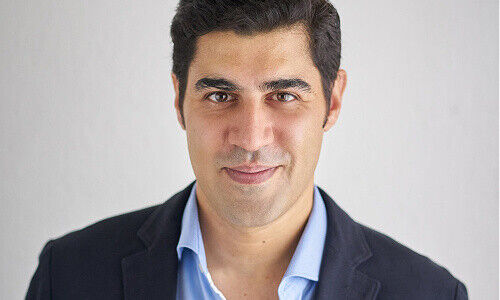Parag Khanna: «I Began to Call Singapore the Capital of Asia»
I compare the depopulating and the growing countries in the world demographically and look at how that alters their economic prospects. This is a book about the war for young talent, against the backdrop of climate change, the pandemic and other megatrends and disruptions. Countries that will be gaining people stand a better chance of success.
For businesses, if you want to invest in the future, you also have to know where people will be. You need to understand where the market is, who will be there, and what is the demographic structure so you can plan for supply chains, infrastructure and things like that.
The world's leaders right now are focused on climate mitigation: how do you reduce the intensity and acceleration of climate change? And that is very noble. What I focus on in this book is an adaptation which needs to get much more attention than we are saying today. How do we retrofit our infrastructure and adapt our economies and our infrastructure and so forth?
What will be the main drivers of the next wave of migration?
Move» is very much about the technology and economics of climate adaptation. And so, if you look at Asia, for example, how will it maintain the economic growth and momentum if it is saddled with stranded assets in terms of coastal real estate and redundant infrastructure?
Now, remember Asia has the largest number of people that are exposed to flooding, drought, rising sea levels and other climate externalities and then any other place in the world. So for the Asian story to succeed, there must be significant investment in climate adaptation. Europe is much more fortunate.
What will come next in terms of how we will be better at enabling mobility?
Technology will enable better mobility. Right now people are being forced to have vaccines, passports and digital immunity certifications. Everyone has a machine-readable passport. We can track where people are so much better than at any other time in history.
So in that sense, the pandemic is a «t=0 moment.» We can have so much more precision moving ahead and I would invest in that thesis. Imagine passport data or mobility data on a blockchain: your travel history, vaccination records, educational records, bank statements, criminal records; everything on the blockchain accessible as needed by authorities. This would allow you to do much more, as governments can attract and verify people.
You work closely with migration specialist Henley & Partners – what is your outlook on the business of investment migration?
First of all, I’m very proud to be associated with Henley & Partners. I think that what they do is helping to unlock more of this market. I believe it's a marketplace and I believe that people should be allowed to move on the basis of their skills and supply and demand.
Of course, they cater to a segment that's wealthy. But migration is also a very important tool of accountability because, if you are a country that is losing people, it means that your policies are bad. For example, you have countries that are slashing taxes on their citizens to avoid them leaving like Poland and other countries. And I think that's right.
«We live in a world where restrictions are enormous and have gotten tighter as a result of the pandemic»
I believe that Henley’s work can and could rightly expand. Because they also promote more harmonization of citizenship by investment schemes, because of their knowledge of best practices. It's not just about an arcane or shadowy market – countries with such programs actually create a common standard and ethos, because they know how to do this ethically, legally while complying with European regulations.
Business is growing but business could grow more if more and more countries move in the direction of offering nomad visas and indefinite residency stays for entrepreneurs. Many people don't want to necessarily change their passports. We live in a world where restrictions are enormous and have gotten tighter as a result of the pandemic. And therefore, all different schemes and mechanisms enable people to move.
Parag Khanna is a leading global strategy advisor, world traveler and best-selling author. He is the founder and managing partner of FutureMap, a data and scenario-based strategic advisory firm. He has advised many governments and corporations around the world and serves on the boards of numerous financial institutions and technology companies. He has been a fellow at the Lee Kuan Yew School, New America Foundation, and Brookings Institution, and worked at the World Economic Forum and Council on Foreign Relations.
- << Back
- Page 2 of 2





















